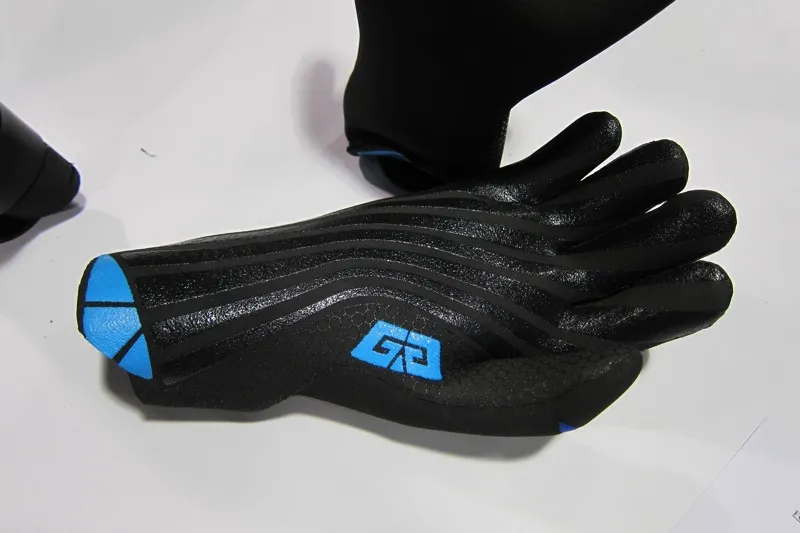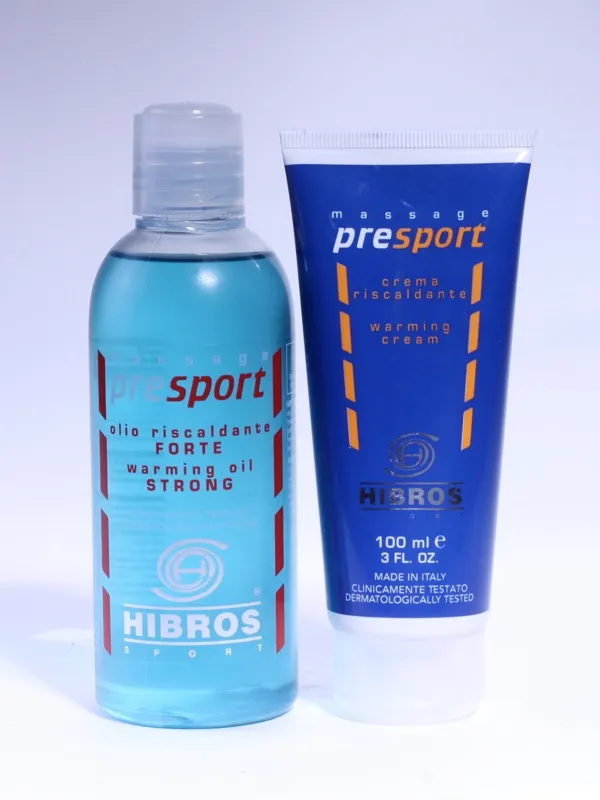The devil is in the details, especially when it comes to a cold and rainy day on the cyclocross course, where the right products can make you more comfortable and help you perform better. A number of small items have landed on the BikeRadar desk that do just that.
Glacier Glove make Neoprene gloves that ensure you still have enough sensation in your hands to shift and brake in a 33°F rain. Hibros balms and oils offer an alternative to thicker American embrocation, while Motorex offer a thick wet – but still biodegradable and carbon-friendly – lube that can hold up to mud and power washing. Finally, we've had the chance to try McNett's TentSure sealant as a water-based alternative to the highly toxic, but thicker, AquaSeal commonly used to treat Dugast tubular tires and repair others.
Glacier Glove: Hunting gloves that found a home in pro cycling
Three or four years ago, the 30-year-old Nevada brand Glacier Glove hit the ranks of professional cycling with their Neoprene hunting and fishing gloves, which showed up in the rain bags of teams including Garmin, Astana and RadioShack. Since then, thinner models have been developed to give cyclists even better dexterity and warmth for those cold, wet days out on the bike.
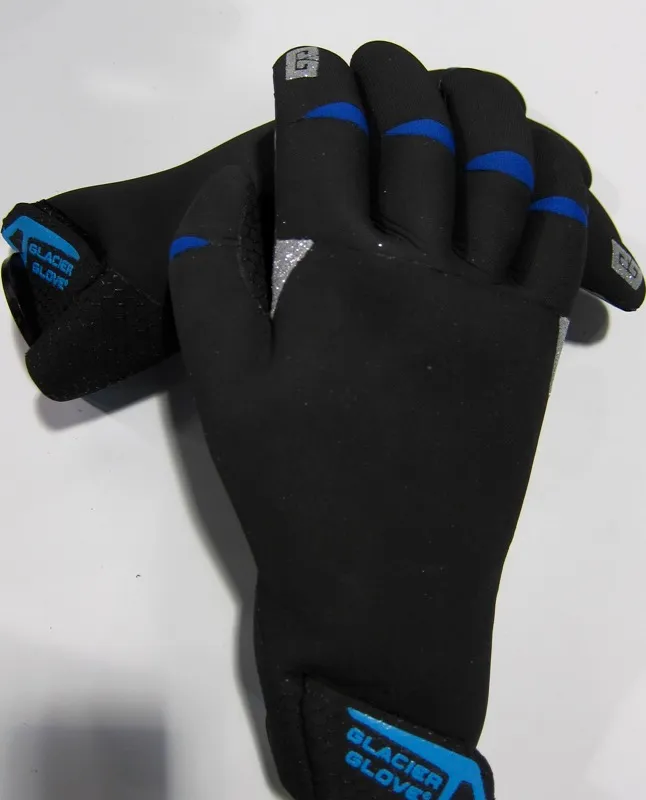
Glacier Glove's new Neoprene cyclo-cross model, which costs $59.95
Glacier Glove have gone on to sponsor USA Cycling's development program and now have a multi-glove line squarely aimed at cycling. For 2012, they'll offer six dedicated cycling gloves, including two cyclo-cross models. These have one-piece palms, including improved ventilation and new straps. Prices range from US$34.99 to $59.99 depending on the model.
Hibros oils and creams: Thin, Euro-style embrocations
Embrocations (warm-up lotions) provide some extra comfort and protection on cold, and wet, days. With the growing popularity of cyclo-cross in the US, we've had a boom of embrocation manufacturers, led by Mad Alchemy and their ever-growing line of signature and pro balms. The American-style products tend to be thicker than European alternatives and lend themselves to the particularly nasty days.
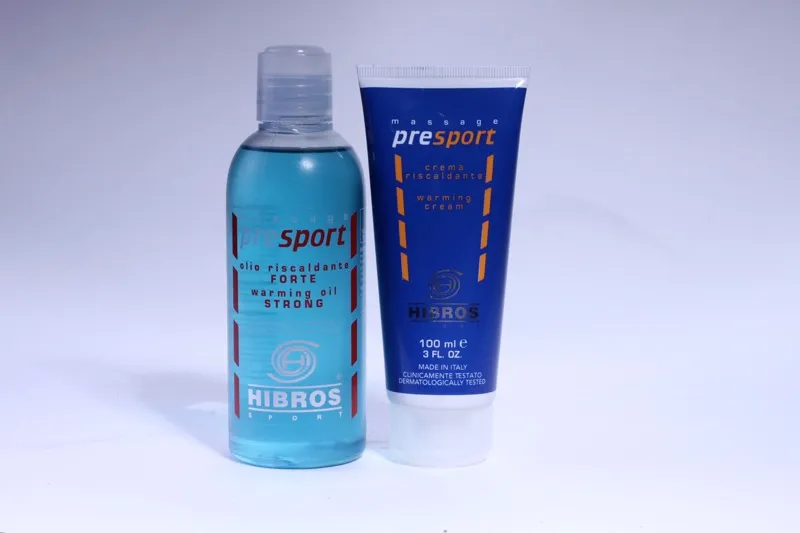
We found the Hibros products to be decidedly 'European' in touch and feel
Italian company Hibros offer a thinner line of creams and oils. We tried their standard PreSport Warming Cream ($24) and Forte/Strong Oil ($26), and found them to offer a reasonable warming effect. These embrocations also provide that 'Euro sheen' associated with the start of the Spring Classics.
Hibros even advertise the ability of their oil to "lend a shiny effect that enhances muscle tone", in case you're into that. Given how thin they are, we'd reserve the oil for dry days and look to the Hibros cream or a thicker-style embrocation on those truly nasty days.
Motorex lubricants: Wet and dry
We've been using Motorex's Dry Lube Spray (US$12.95) and Wet Lube Spray ($14.95) in corresponding cyclo-cross conditions. While both synthetic lubricants seem to work well, we can speak particularly highly of the Swiss company's wet lube. It offers impressive tenacity, especially under the demanding conditions of mud and power washing associated with 'cross.
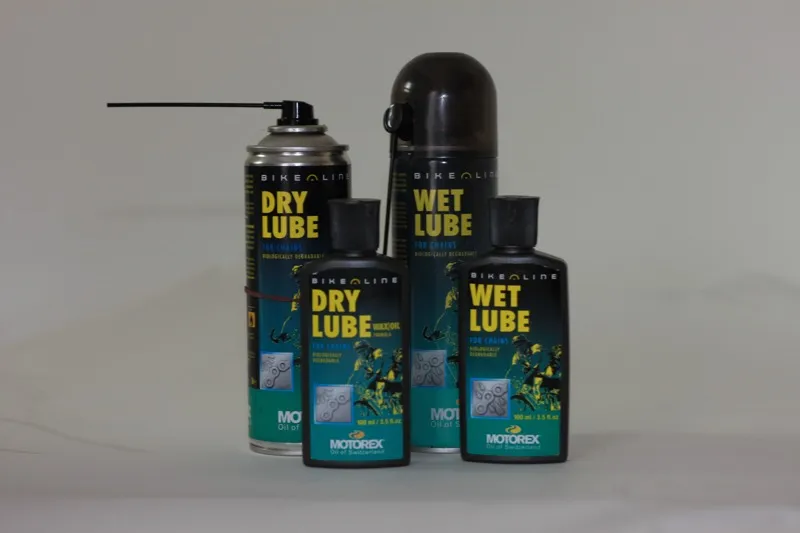
Motorex's dry and wet lubricants; we found the latter to work especially well on those 'special' days of cyclo-cross
While the spray can is more wasteful than the dropper bottle also offered, it makes it easy to coat the majority of the drivetrain quickly, including the derailleur springs and linkages. The wet lube should definitely be reserved for rainy days as it attracts dirt in the dry like a magnet.
For additional piece of mind, Motorex has tested and approved both lubes for use on carbon fiber – so no fear of overspray, just keep it away from disc brake components – and they're biodegradable, so you needn't worry about polluting your environment.
McNett TentSure: A healthier, easier-to-use alternative to AquaSeal for protecting tubulars
TentSure is made by McNett who also make AquaSeal – the go-to standard for protecting Dugast's handmade cotton cased tubulars. Both products were originally designed to seal and protect seams on tents and other outdoor gear. The difference is that TentSure is much more environmentally friendly and safe(r) for human contact.
While TentSure is water-based, non-toxic and carries no FSA (USA Food and Drug Administration) or CDC (Centers for Disease Control and Prevention) warnings, AquaSeal contains the solvent toluene – a volatile organic substance that's not water soluble and is a methylbenzene derivative. The CDC warn that toluene causes birth defects and recommend that "strict hygiene" is maintained.
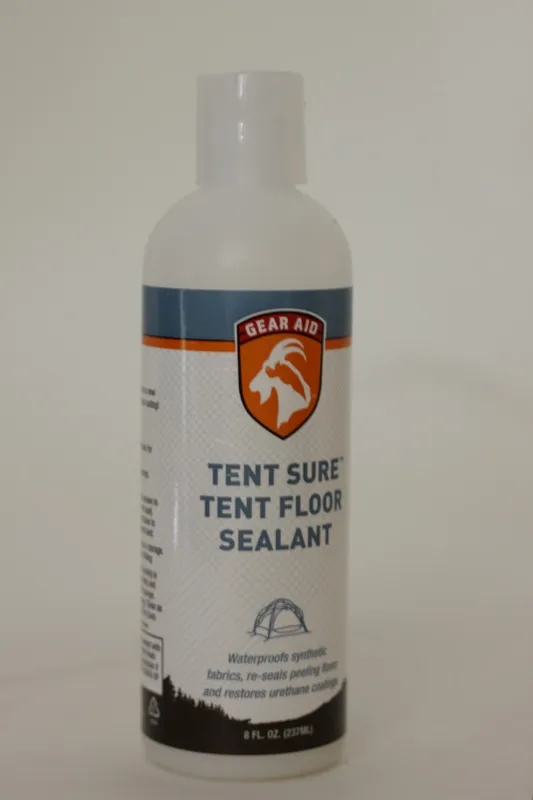
Waterproof your tires without the health risk of AquaSeal
While all the bad stuff in AquaSeal works expertly to penetrate the tubular casing and infuse it with urethane sealant, we found the protective barrier provided by TentSure to be thinner and less resistant to abrasives, like rocks and other sharps found on a cyclo-cross course. TentSure is easier to apply, though, as it's painted on with a brush, and comes free of the precautions required of AquaSeal.
Riders living in arid climates, like Colorado, will still want to use AquaSeal on their tires. However, for those riding softer courses, TentSure sure does have appeal. We'd recommend AquaSeal for Dugast Rhino mud tires and TentSure for Typhoons and Pipisquallos. If you're going to use AquaSeal, do it in a well ventilated area and with a respirator and gloves. An 8oz bottle of TentSure, with brush, sells for $9.99 at cyclocrossworld.com.
